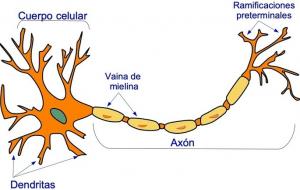10 types of arguments with examples
An argument is reasoning used to convince, prove, or support an opinion, and is made up of premises leading to a conclusion.
Anthony Weston classified the types of arguments into five categories:
- argument from authority
- argument by analogy
- Argument through examples
- argument about causes
- deductive argument
Additional, commonly accepted and used categories are added to this classification:
- inductive argument
- Argument from data and numbers
- General sentiment argument
- Argument from personal experience
- counterargument
The theme that we will use to illustrate the examples will be "Benefits of physical activity" and we will argue the thesis “Physical activity is beneficial for mental health”.
| argument type | Plot bases and characteristics | examples |
|---|---|---|
| argument from authority |
|
The American National Institute of Mental Health maintains that exercise reduces anxiety. "Exercise is the key to physical health and peace of mind." (Nelson Mandela) |
Argument through examples |
|
Practicing boxing helps to channel aggressiveness. Exercise improves self-esteem and mood. |
| argument by analogy |
|
Just as sun and water provide many benefits to plants, exercise provides multiple benefits to the mind. |
| argument about causes |
|
The practice of moderate exercise improves the quality of sleep. This is due to increased secretion of melatonin, a hormone that regulates the sleep cycle. |
| deductive argument |
|
Outdoor sports relieve mental fatigue. Hiking is an outdoor sport. Therefore, hiking relieves mental fatigue. |
| inductive argument |
|
Karate helps to gain confidence and discipline. Judo promotes self-esteem and self-control. Jiujitsu helps reduce stress. |
| fact-based argument |
|
In the world, 80% of children and adolescents practice sport insufficiently, 13% are affected by depression, anxiety or behavioral disorders. |
| overall feel |
|
Most children who practice martial arts develop a greater ability to concentrate. |
| Personal experience |
|
Yoga helps me control anxiety and, furthermore, by practicing it daily I notice greater progress and that helps me to trust myself more. |
| counterargument |
|
If sport is so beneficial, why are there athletes who do not enjoy good mental health? Because the practice of sport at a professional level is very demanding. With sports practice we refer to a moderate practice as a healthy habit. |
1. argument from authority
It is a type of argument that consists of referring to authors or authorized sources from which to obtain relevant information that reinforces the opinion that we are defending.
For example, citing universally accepted authors and works for reference:
Plato (Republic, 410c) "[...] they have instituted education through music and gymnastics to care for the soul."
Or transmitting affirmations disseminated by prestigious organizations and institutions:
According to World Health Organization, “Physical activity has important benefits for the health of the heart, body and mind.”
2. Argument through examples
This type of argument defends an affirmation through a series of particular examples that have a relationship of similarity and that serve to illustrate the defended position.
The example is presented as an accepted fact that supports the position to be accepted. These examples must be true and at least three examples are necessary to support a conclusion.
For example:
- Physical activity helps reduce stress.
- Physical exercise promotes blood circulation and the release of endorphins.
- The practice of physical activity improves mood.
So we can say that leading an active lifestyle is beneficial for mental health.
3. argument by analogy
This argument compares two issues to find the characteristics they have in common and, in this way, find a conclusion with which to defend the thesis.
We use the comparison of the case that represents our opinion with another case that bears certain similarities.
An argument by analogy on the subject we are illustrating would be:
The more the blades of a wind turbine move, the greater the amount of energy it produces, in the same way the more the human body moves, the greater its blood flow.
The increase in blood flow that irrigates the nervous system positively affects the brain areas that regulate stress and anxiety.
4. argument about causes
In this case, we reason about the causes that originate the conclusions that we defend, that is, about the reciprocal relationship between two facts, the cause and its consequence.
A cause-effect argument must also reveal that there is coherence between both concepts and their background.
Let's look at an example:
The moderate practice of exercise generates physical and mental well-being, because playing sports entails a stimulus that favors brain activity and generates new neural connections.
In this way, anxiety levels, depression symptoms and the probability of suffering from neurodegenerative diseases decrease.
5. deductive argument
They are also known as valid arguments, because they reach a lawful conclusion from the validity of their premises.
In other words, you cannot accept what the premises say and deny what the conclusion says, because the conclusion corroborates what the premises affirm.
The deductive argument starts from a general conclusion that leads to particular premises.
An example of a deductive argument would be:
Mental disorders affect thinking, behavior, and mood.
Anxiety is a mental disorder.
Activities such as meditation, relaxation and physical exercise help reduce the symptoms and effects of mental disorders.
Therefore, activities such as meditation, relaxation and physical exercise help reduce the symptoms of anxiety.
6. inductive argument
It is an argument that starts from particular premises to reach a general conclusion.
As in the deductive argument, there must be a coherence relationship between the premises and the conclusion, they cannot contradict each other.
Let's look at an example of an inductive argument:
Physically active people over 60 years of age have a greater retention and learning capacity.
Physical activity in older people favors the production of new brain cells.
Therefore, we can affirm that the practice of exercise in older people prevents diseases related to cognitive deterioration.
7. Argument based on the facts
It is an argument of an objective nature, which is based on statistical data, figures and percentages, the result of research and empirical demonstration.
This would be an example of an argument based on the facts:
According to data obtained from a survey of one hundred thousand participants, 89% say that they practice sports to improve their physical appearance and their state of mind. 76% consider that strength training is the activity that most helps physical and mental well-being.
8. General sentiment argument
They are arguments that use the general opinion of society or a specific group to defend a position. This type of argument is used to induce an opinion in the readers.
A general sentiment argument could be:
Most people, after doing some type of exercise, say they feel more energetic and in a better mood than before.
9. Argument from personal experience
It is about making a defense of the thesis based on one's own experience, which gives the argument a clearly subjective character.
Let's look at an example:
For two years I have suffered from anxiety, which manifests itself in sporadic crises and insomnia. The doctor recommended that I practice moderate exercise to improve the quality of my sleep. Since I go for a walk in the morning, I sleep more hours continuously and sleep is more restful.
10. counterargument
It is an argument that is used as a reply, that is, an objection that is against the thesis.
Let's look at an example of a counterargument and its corresponding rebuttal:
There will be those who are against this statement, because, between work, family and other responsibilities, they do not have time to exercise. Well, to obtain the benefits that exercise provides to our mental health, it is enough to dedicate 30 minutes a day.
For people who do not have financial resources, there are numerous activities that we can do free, such as walking, running outdoors, or practicing sports such as yoga, through classes published on Internet.
See also:
- Structure of an argumentative text
- Types of texts
- Induction and deduction
References:
- Bellodas Paredes, P. AND. (2016). Use of arguments in the production of academic essays.
- Diaz, A. (2002). The written argument. University of Antioquia.
- Gonzalez, M. (2009). Logic and argumentation-From inductive arguments to Boolean algebras.
- Westton, A. (1994). the argumentation keys. Barcelona. Ariel.



